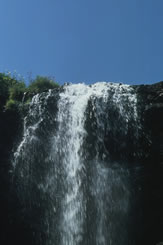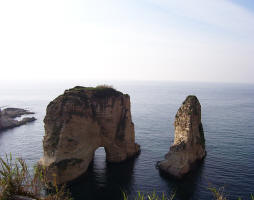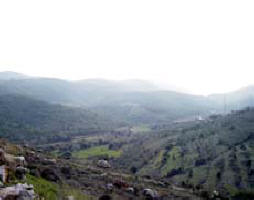 Israel-Palestine: Water project is a drop in the ocean on West Bank
Israel-Palestine: Water project is a drop in the ocean on West Bank
With the help of the International Committee of the Red Cross (ICRC) and the Palestinian Water Authority, one town on the West Bank now has access to plentiful water, giving Samua's mayor and townspeople something to celebrate.
A large reservoir and pipeline connecting it to a pumping station some 8km away are now in use. Estimates had put daily water use at between 10 and 25l per person on average, far below World Health Organization recommendations. That figure would now reach 40l or even 70l a day.
Improving water services for the town's 22,000 people solves only a fraction of the problem, however. According to conservative estimates, about 200,000 Palestinians in the West Bank are not connected to water networks. The people must buy water and ship it in tanks or rely on cisterns and private wells.
Health officials have said these sources are many times more polluted and can cause illness. Furthermore, tanked water can cost more than twice as much as water from a network.
The ICRC project in Samua will be complemented by a second one inside the village, this time under the auspices of the World Bank, which will improve existing pipes and connect all the residents to an internal distribution network to transfer the water from the reservoir directly to homes.
The downside to the project is the initial cost: each household will have to pay about $150 to connect to the network, which in the poor southern West Bank is a hefty price tag.
Samua, an ancient town with a Canaanite name, a city centre of Byzantine ruins and mosques hundreds of years old, is also famous for having been raided by the Israelis in a cross-border attack in 1966 an event widely held as a key incident leading to the 1967 Middle East War.
With the increase expected in water usage, the amount of wastewater will also rise, though Samua, like most of the West Bank, relies on septic tanks.
In some villages, like Aqaba in the Jordan Valley, remote and disconnected, many people though still use dry pits as toilets.
The main problem, besides unfit septic tanks, which leak into the aquifer, arises after the septic tanks are cleaned out, as there is only one waste-water treatment plant for the Palestinians in the West Bank. Most of the dirty water simply ends up dumped in rivers and streams, causing pollution.
Environmentalists and water experts say some 90 percent of the territory's waste-water is not treated and the only solution is building more treatment plants.
However, all water projects in the West Bank, including the digging of wells, require Israeli permission.
| Contact information | n/a |
|---|---|
| News type | Inbrief |
| File link |
http://www.irinnews.org/Report.aspx?ReportId=78507 |
| Source of information | © IRIN. All rights reserved. More humanitarian news and analysis |
| Keyword(s) | wastewater |
| Subject(s) | ANALYSIS AND TESTS , CHARACTERISTICAL PARAMETERS OF WATERS AND SLUDGES , DRINKING WATER , DRINKING WATER AND SANITATION : COMMON PROCESSES OF PURIFICATION AND TREATMENT , HEALTH - HYGIENE - PATHOGENIC MICROORGANISM , POLICY-WATER POLICY AND WATER MANAGEMENT , PREVENTION AND NUISANCES POLLUTION , SANITATION -STRICT PURIFICATION PROCESSES , WATER QUALITY |
| Relation | http://www.semide.net/countries/fol749974/country608613 |
| Geographical coverage | Israel, Palestine |
| News date | 02/06/2008 |
| Working language(s) | ENGLISH |
 you are not logged in
you are not logged in





